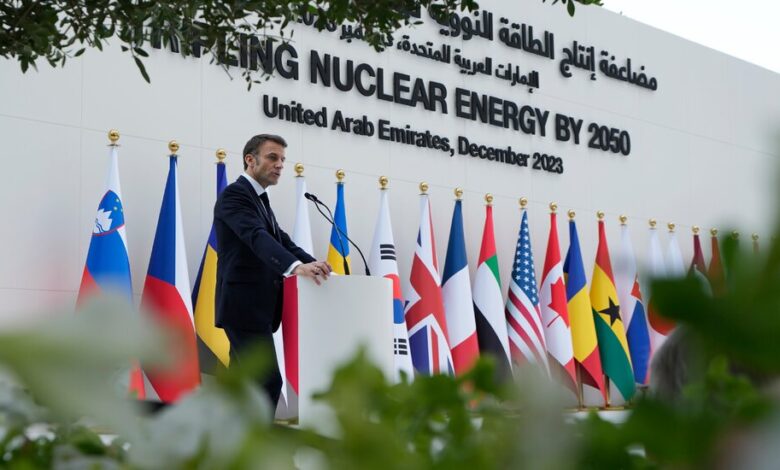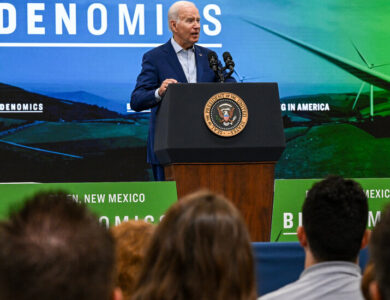
The United States and 21 other countries committed to triple nuclear energy capacity by 2050 at the United Nations climate summit in Dubai, aiming to reduce carbon emissions effectively. This move reflects the acknowledgment of the crucial role of nuclear power in the transition to sustainable energy sources. While nuclear energy currently supplies 18 percent of electricity in the United States, proponents assert its cleanliness, safety, and reliability as a complement to wind and solar energy. However, the development of nuclear power faces significant financial challenges, exemplified by the cancellation of a small nuclear reactor project in Idaho due to escalating construction costs.
The 22 countries that signed the declaration to triple nuclear energy capacity by 2050 included Britain, Canada, France, Ghana, South Korea, Sweden, and the United Arab Emirates.
The goal of tripling nuclear energy capacity by 2050, aside from reducing reliance on Russian oil and gas in Europe, necessitates substantial investment. However, the stagnation of investment in advanced economies, accounting for nearly 70 percent of global nuclear capacity, is attributed to soaring construction costs and project delays. In response to financing concerns, John Kerry, President Biden’s climate envoy, highlighted the availability of “trillions of dollars” for nuclear investment. He emphasized the scientific consensus that achieving net-zero emissions by 2050 requires the integration of nuclear energy.
Nuclear power’s carbon-free nature was underscored by an International Energy Agency report, positioning it as crucial for carbon emission reduction in line with the Paris Agreement goals. President Emmanuel Macron of France also emphasized the indispensability of nuclear energy, particularly small modular reactors, in addressing climate change. Additionally, world leaders, including Prime Minister Ulf Kristersson of Sweden, called for international financial institutions to support nuclear projects, advocating for shared financial risks to incentivize investments in nuclear energy.
While nuclear energy was hailed by world leaders as the most effective alternative to fossil fuels, some climate activists expressed skepticism about its potential. David Tong, a researcher at Oil Change International, criticized the pledge, highlighting the high cost and slow pace of nuclear energy. He emphasized that the growth in nuclear energy is minimal compared to the proposed tripling. Similarly, Masayoshi Iyoda, an activist from Japan, cited the Fukushima nuclear disaster and asserted that nuclear power poses significant risks and distractions from decarbonization goals. He advocated for renewable energy and energy efficiency as superior and faster solutions to the climate crisis.
Despite the mixed views on nuclear energy, the commitment to triple nuclear energy capacity reflects a pivotal step toward reducing reliance on fossil fuels and addressing climate change. It underscores the complex and multifaceted nature of the energy transition, where different perspectives and challenges must be navigated to achieve sustainable and efficient energy systems.
The rise and decline of nuclear capacity over the years, marked by accidents such as Three Mile Island in Pennsylvania and Chernobyl, have prompted the implementation of new technologies and stricter regulations. This has contributed to a growing favorability toward nuclear power in the United States, as reflected in a recent Pew Research Center study. As the global push for nuclear energy expansion unfolds, it is essential to address the financial, safety, and regulatory aspects to ensure its effective integration into the sustainable energy landscape.




